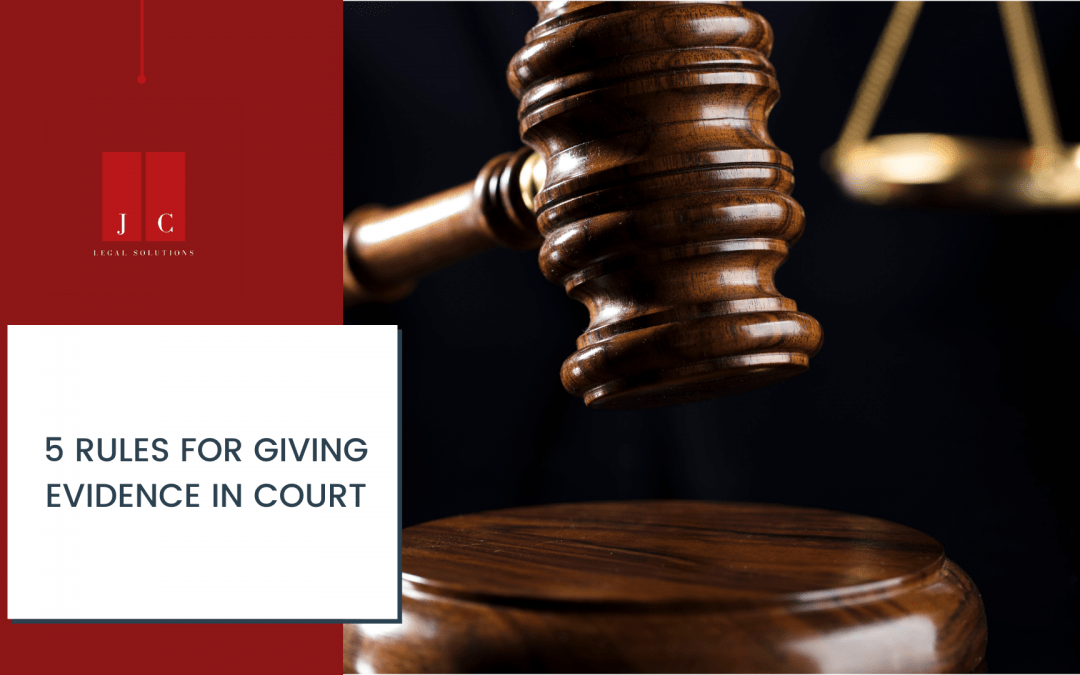Giving evidence in court is never easy. Many people dread the prospect. You may face hostile advocates or judges. Many clients are anxious about the possibility of giving evidence. Here are some pointers to assist, which may ease some of that anxiety.
Rule 1 – Listen to the question
1. Listen to the question you are asked. Often, the witness fails spectacularly in court or gives unimpressive evidence simply because they have not listened to the question, which is understandable. Anxiety means that we are not at our best, and we also want to get our story out. But you should trust your lawyer to get your evidence out without you needing to worry about that. So, listen to the question you are asked.
Rule 2 – Answer the question.
2. Often, rule 2 is breached because rule 1 was breached. You can answer a question that you haven’t heard because you were not listening to in the first place. When answering the question, answer the question you have been asked. Do not make the mistake of providing an answer to a question you have not been asked. This might damage your case or make you look as if you are avoiding the question and can make you look untrustworthy as a witness.
Rule 3 – Say as much as you need to say and no more.
3. Answer the question and just the question. In other words, if you can keep your answer short, do so. If a yes will do, give a yes; if a no will do, provide a no. Sometimes you are asked an open question, and a yes or no would be inappropriate. In this situation, answer the question as fully as you can and say no more. Remember, you can trust your lawyer to bring out the evidence that you need. Once your lawyer has done this, there isn’t much more for you to do, apart from assisting the court in clarifying your previous evidence. Brevity is key.
Rule 4 – If you don’t understand the question, say so
4. If you don’t understand the question you’ve been asked, say so. Ask for the question to be re-stated in another way, and don’t be shy about doing so. Never answer a question that you have not fully understood because this may lead to misunderstanding and confusion and might be damaging to your case. You are entitled to know and understand the question you are being asked in court.
Rule 5 – Don’t argue.
5. The last rule is a simple one but often breached. Don’t be argumentative, sarcastic, or answer a question with another question. Be polite and courteous at all times. Remember, you are trying to persuade the court to accept your evidence. If you are seen as unnecessarily combative, the court may be reluctant to accept what you have to say.
Now that you have all of the rules of how to behave when on the stand during court proceedings, it should make the process smoother and stress-free. Sometimes the key to having a case end with a positive outcome is how your statement on the stand goes and having a lawyer you trust.
JC Legal Solutions is a law firm built on core principles that put PEOPLE first. To book a consultation, please visit us on our website to learn more.
